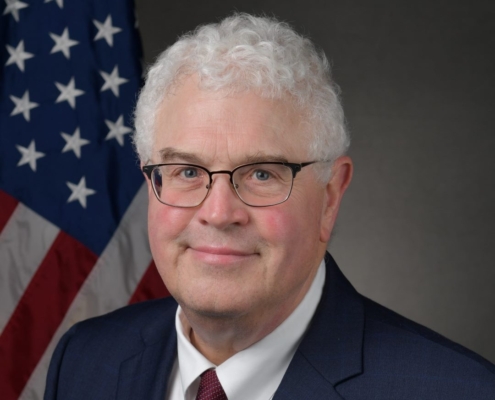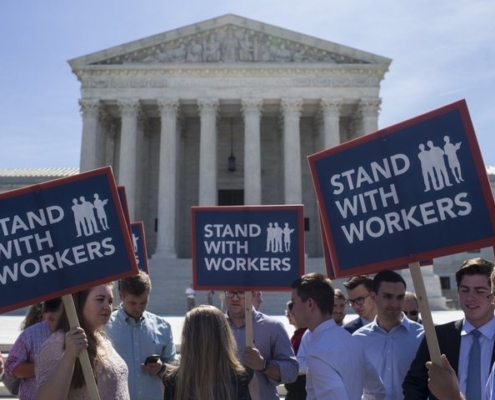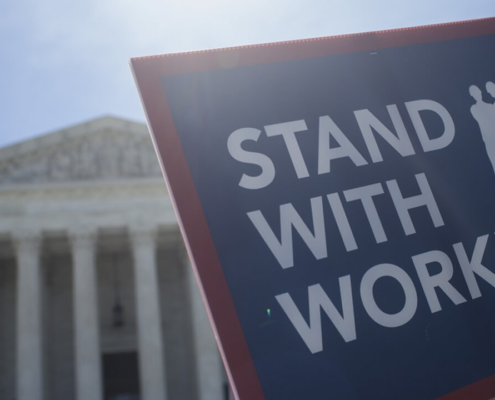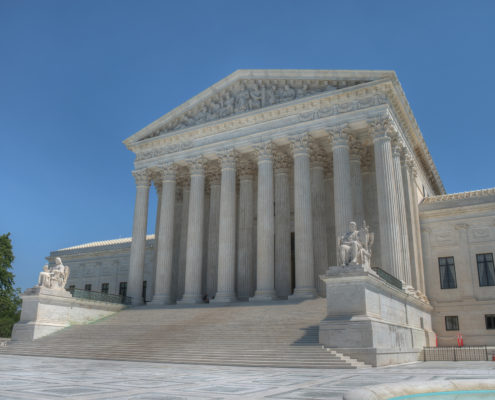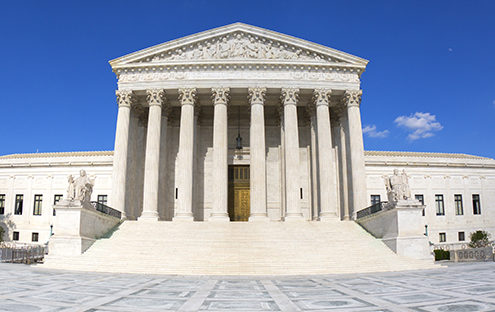Public Statement: Janus v. AFSCME Decision
Pioneer Institute applauds the U.S. Supreme Court’s opinion in Janus v. AFSCME, a case with significant implications for Massachusetts in which the Court held that public employees who choose not to join a union cannot be compelled to pay the union an “agency fee” to cover the cost of contract negotiations and workplace grievance procedures.
Pioneer believes that the constitutional guarantee of freedom of association means that just as union membership should never be banned, no one should ever be compelled to contribute to an organization with which s/he does not agree.
The ruling will have significant impact in Massachusetts, where 18 of the 20 political action committees that contributed the most to candidates for state and county offices were labor organizations, and 85 percent of all PAC contributions went to Democratic candidates, according to the latest data available from the Commonwealth’s Office of Campaign and Political Finance. That 85 percent is undoubtedly higher among labor PAC contributions. Janus will likely result in public employees having to earn membership, which translates to focusing more on issues like pay and working conditions that members care most about, and less on political activity.
The impact of the Supreme Court’s ruling may also have immediate legal implications. A group of educators has petitioned the Commonwealth’s Supreme Judicial Court to hear a case challenging the payments they are compelled to make to unions as a condition of employment.
At the invitation of the Pacific Legal Fund, Pioneer, through its public interest law initiative PioneerLegal, signed onto an amicus brief that urged the Supreme Court to hear Janus v. AFSCME. The Institute has also written a number of opinion pieces and made media appearances to discuss the case.
Stay Connected!
Related Posts


